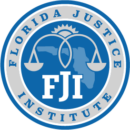Yesterday, the Florida Justice Institute (FJI) and Pensacola attorney Benjamin Stevenson filed a lawsuit challenging a Jacksonville Ordinance that prohibits requesting and receiving donations in large swaths of the City. The Ordinance outlaws solicitation on all streets and sidewalks, and prohibits standing on medians and exchanging items with motorists along certain roadways. Although the Ordinance allows people to seek a permit to engage in these activities, the permitting scheme is largely illusory. Applicants can obtain permits for a maximum of six days per year, and only after navigating insurmountable hurdles like submitting a detailed safety plan, indemnifying the City, and obtaining a million-dollar insurance policy. Finally, if an applicant manages to comply with those requirements, City officials have nearly unfettered discretion to approve or deny the application. The lawsuit alleges that the Ordinance violates the First Amendment right to solicit donations and distribute information on public property, and seeks an immediate declaration enjoining it.
The Plaintiff is the Cosac Foundation (Foundation), a nonprofit that publishes and distributes The Homeless Voice newspaper, which seeks to educate the public about issues facing the homeless population. Its solicitors request donations and distribute the free newspaper at various intersections, but have not been permitted to do so since the passage of the Ordinance. The passage of the Ordinance was roundly criticized at the time.
“The City cannot silence speech that it doesn’t want to see at its intersections,” said Ray Taseff, attorney with the Florida Justice Institute. “The First Amendment requires these spaces to be open for the exchange of ideas.”
While the Ordinance has a provision that would allow applicants to obtain a permit to engage in this speech, it only permits applicants to obtain one for a maximum of six days per year—effectively a 359-day per year ban on solicitation. The permitting scheme also requires applicants to provide a detailed safety plan (which must include posting large signs at the intersection and wearing fluorescent vests), an indemnification in favor of the City in a form satisfactory to the City attorney, and a commercial general liability insurance policy for bodily injury and property damage with $1,000,000 of coverage.
“The First Amendment generally prohibits cities from forcing residents to obtain permission before speaking,” said Benjamin Stevenson. “The government should not decide who may enter the marketplace of ideas.”
The case is Cosac Foundation v. City of Jacksonville, Case No. 24-cv-00213 in the Middle District of Florida.
